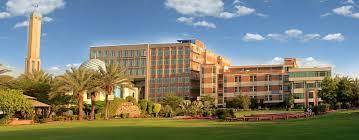Microbiology scope in Pakistan
A Microbiologist is a scientist who studies the microscopic organisms that exist in all environments, including human and animal bodies. They study the effects of these microorganisms on human health and the variety of diseases that are caused and can be caused by them. There are many types of Microbiologists, such as Environmental Microbiologists, Medical Microbiologists, Food Microbiologists, Plant Pathogenic Bacteriologists, and Veterinary Epidemiologists.
What is the Microbiology of Pakistan and How Does it Differ from Other Countries?
Microbiology is the study of microscopic organisms, which includes bacteria, fungi, protists, and archaea. The field of microbiology in Pakistan differs from other countries because of its soil composition and climate. Pakistan has a high percentage of arid land that contains low amounts of nitrogen and phosphorus. This makes it difficult for the microbes to develop in the same way as in other countries. The microbiology also differs due to its geographical location – located on the Indus River basin with a tropical climate.
What are the Key Issues Facing Pakistan’s Microbiology?
The main issue that Pakistan faces is the lack of qualified people to take up this profession. The lack of skilled professionals has led to a decline in the number of jobs available for microbiologists. The microbiologist profession will require more people and this profession is currently in a crisis. The other issue is that there are insufficient resources for research and development, leading to a shortage of new antibiotics, vaccines, and diagnostic tests.
Introduction
A microbiologist is an individual who conducts research on microbes and the environment. They typically work in a laboratory setting and are responsible for the following:
- Culturing microbes
- Identifying microbes
- Studying microbial growth and reproduction
- Analyzing microbial samples
A microbiologist is a person who studies microorganisms and their interactions with the environment. They are also known as lab technicians or assistants.
The job of a lab technician is to perform routine laboratory tasks on a variety of samples, including bacteria, fungi, and viruses. Lab technicians also often help prepare samples for testing and perform other tasks that are not technical in nature. It’s important to note that the job description for lab technicians can vary depending on the type of laboratory they work in.
In Pakistan, there is an urgent need for microbiologists due to the high numbers of infectious diseases like dengue fever and malaria. The government has been trying to address this issue by establishing new laboratories nationwide.
Pakistan has a large population of people with limited access to healthcare facilities. As a result, Pakistan needs more and more people working in this field.
Microbiologists are responsible for the safety of food products at all stages of production from harvesting to consumption. They also help in developing new vaccines that can prevent diseases like cholera, typhoid fever, polio, hepatitis A and B, etc., as well as new drugs and antibiotics.
Detail responsibilities of a Microbiologist
The following list covers some of the basic responsibilities of a microbiologist:
- Maintaining, and enhancing soil and water resources.
- Examine the development, growth, and other traits of microbial organisms as well as how they interact with their surroundings.
- Examine the makeup and operation of the tissues, cells, infections, and toxins found in people, animals, and plants.
- To find and categorize microorganisms in human, water, and food specimens.
- Create and maintain microbe cultures in established or custom-made media while monitoring nutrition, temperature, moisture, and aeration.
- Watch how bacteria affect the living tissues of plants, larger animals, other bacteria, and dead organic stuff.
- Maintain the quality of personal care products and cosmetics.
- Virology.
- Parasitology.
- Immunology.
Microbiology Scope in Pakistan
Following are some of the national and international job opportunities available for Microbiologists:
- Research laboratory technician
- Pathology labs
- Veterinary medicine doctor
- Quality control analyst
- Public health microbiologist
- Immunologist
- Research Scientist
- Food Microbiologist
- Dairy Microbiologist
- DNA technologist
BS Microbiology scope in Pakistan
Despite being economically challenged and in a state of slow development, Pakistan is striving to come shoulder to shoulder with the other developing countries. The scope of BS Microbiology is bright for students because of the population growth. As a nation, we need qualified individuals, not only in the medical field but also in the associated fields of medicine. Microbiology is one of the most important fields in the world (which is witnessed by everyone in the past 3 years of COVID terror).
The jobs are available in many micro and macro niches of various industries for Microbiology graduates in Pakistan.
Those pursuing further education in Microbiology (Masters and Ph.D.) will have higher-level jobs in the above-mentioned fields.
Institutes offering BS Microbiology
Following are some of the institutes that offer BS microbiology in Pakistan:
- The University of Lahore
- Government college university, Lahore
- University of Sindh, Jamshoro
- University of Karachi
- Iqra University, Karachi
- Capital University of Science and Technology, Islamabad.








